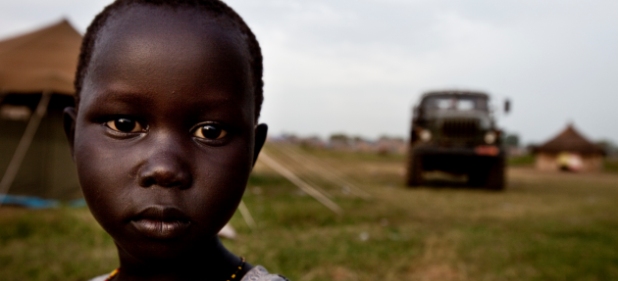Where We Work
See our interactive map


IntraHealth International is a founding member of the Safeguarding Health in Conflict coalition—a new coalition of international nongovernmental organizations calling on the global community to protect health workers, services, and infrastructure during conflict. This marks the first time an international coalition has come together to work on this issue.
Assaults on health facilities, health workers, and the patients they serve are all too common during armed conflict or civil disturbances. Aside from the devastating human toll they take, these attacks compromise the ability to deliver care to populations in great need, impede efforts to reconstruct health systems after war, and lead to the flight of health workers whose presence in a time of great social stress is essential.
Due to scarce documentation, the international community has not been able to quantify the true scale of these assaults or their detriment to public health outcomes and infrastructure. Anecdotal evidence persists: in Somalia, a suicide bomber attacked a medical school graduation ceremony in the capital of Mogadishu, killing 22, including the ministers of health, education, and higher education and several new doctors—from only the second class of medical graduates in Somalia in nearly 20 years. In Afghanistan, with the world’s most imperiled health system1, health workers are often subjected to threats, harassment, and attacks; many have been abducted to treat wounded fighters or for ransom2.
“The principle of medical neutrality has been increasingly flouted,” said Maurice I. Middleberg, vice president for global policy at IntraHealth. “Now political parties view targeting medical facilities or abusing medical symbols as a subterfuge for military activity.”
The list of countries where military and rebel forces have violated international conventions for medical neutrality goes on: Mali, Bahrain, Syria, Libya, Kosovo, Democratic Republic of the Congo, Central African Republic, Sri Lanka, Kenya, and many more. Because such attacks usually go unreported, it has been challenging to stimulate the political will to demand that perpetrators be held accountable.
The new coalition promotes respect for international humanitarian and human rights laws that relate to the safety and security of health facilities, workers, ambulances, and patients during periods of armed conflict or civil violence. The coalition focuses on:
Secretariat member IntraHealth International manages the coalition’s website, www.safeguardinghealth.org.
Founding members of the Safeguarding Health in Conflict coalition are IntraHealth International, Center for Public Health and Human Rights at the Johns Hopkins Bloomberg School of Public Health, Doctors for Human Rights, International Council of Nurses, International Health Protection Initiative, Karen Human Rights Group, Medact, Merlin - UK, and Physicians for Human Rights.
Non-voting observers include the International Committee of the Red Cross, American College of Physicians, and World Medical Association.
FEATURED NEWS AND BLOG POSTS
World Health Assembly Takes Action to Protect Health Workers in Humanitarian Crises
IntraHealth International and other founding members of the Safeguarding Health in Conflict coalition commend the World Health Assembly... » Read More
Health Under Attack: The Need to Safeguard Health in Conflict
If you’ve been following international news for the past year, you are most likely aware of the recent developments and political movements in the... » Read More
Finally, a Major Step Forward in Protecting Health Workers and Facilities
Despite firm standards rooted in the Geneva Conventions to protect health facilities, health workers, and the patients served during armed conflict... » Read More
Medicine as a Weapon in Syria and Beyond
An editorial in The Lancet issued a dire warning to the international medical community: medicine is a weapon of war in Syria. » Read More
UNACCEPTABLE: Health Workers as Pawns of Warfare
An NPR story described a major humanitarian group’s decision to stop treating patients from detention centers in Misrata, Libya. » Read More
ADDITIONAL INFORMATION
1. UNDP, Afghanistan Millennium Development Goals: Progress at a glance



